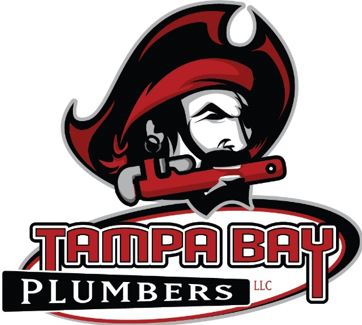
COVID-19 (Coronavirus) Update From Tampa Bay Plumbers
We understand plumbing emergencies can happen at any time, including during a pandemic. Recognizing the ongoing and increased uncertainty that coronavirus (COVID-19) is causing both in the Tampa Bay Area and around the world, our highest priority is the health and well-being of our clients and employees. With that in mind, we wanted to update you on the actions Tampa Bay Plumbers has taken in response to the outbreak to protect our employees and clients and continue our efforts to serve the community to the best of our ability.
- Any and all Tampa Bay Plumbers staff who are symptomatic will be asked to stay home.
- Our Customer Service staff will be asking all clients if anyone in the home or business has been symptomatic (cough, fever, shortness of breath). At this time, we’re limiting our contact with symptomatic clients in an effort to reduce the possibility of spreading illness to others, per CDC recommendations.
- Our field staff will be utilizing protective gear (gloves, booties) in all homes and utilizing recommended hygiene standards, including: regularly washing & disinfecting hands; wiping down workspaces, iPads and vehicles between every service call, limiting physical interactions with customers (no handshaking, sorry!) and keeping a safe distance from others.
Tampa Bay Plumbers will continue to operate as scheduled, including 24/7 emergency service. Our focus is to ensure we are available to meet our client’s needs for as long as possible, while also doing our part to keep our community safe and maintain the lowest health risk possible. We will continue to closely monitor the situation as it unfolds, and adjust our operating plan as necessary.
For more information about our services or to contact us, visit our website: https://www.tampaplumber.net/
Or our social media page:
https://www.facebook.com/TampaBayPlumbers
Tampa Bay Plumbers IS OFFERING FULL HOME AND BUSINESS WATER PURIFICATION SYSTEMS TO ELIMINATE THE CHANCES OF THE VIRUS BEING IN YOU WATER SUPPLY. This will ensure you and your loved ones an unlimited supply of SAFE drinking, showering and cooking water!!! No need to go out to stores for bottled water. Worry-Free 100% financing available!
Water Transmission and COVID-19
Drinking Water, Recreational Water and Wastewater: What You Need to Know
Can the COVID-19 virus spread through drinking water?
The COVID-19 virus has not been detected in drinking water. Conventional water treatment methods that use filtration and disinfection, such as those in most municipal drinking water systems, should remove or inactivate the virus that causes COVID-19.
Is the COVID-19 virus found in feces?
The virus that causes COVID-19 has been detected in the feces of some patients diagnosed with COVID-19. The amount of virus released from the body (shed) in stool, how long the virus is shed, and whether the virus in stool is infectious are not known.
The risk of transmission of COVID-19 from the feces of an infected person is also unknown. However, the risk is expected to be low based on data from previous outbreaks of related coronaviruses, such as severe acute respiratory syndrome (SARS) and Middle East respiratory syndrome (MERS). There have been no reports of fecal-oral transmission of COVID-19 to date.
Can the COVID-19 virus spread through sewerage systems?
CDC is reviewing all data on COVID-19 transmission as information becomes available. At this time, the risk of transmission of the virus that causes COVID-19 through sewerage systems is thought to be low. Although transmission of COVID-19 through sewage may be possible, there is no evidence to date that this has occurred. This guidance will be updated as necessary as new evidence is assessed.
SARS, a similar coronavirus, has been detected in untreated sewage for up to 2 to 14 days. In the 2003 SARS outbreak, there was documented transmission associated with sewage aerosols. Data suggest that standard municipal wastewater system chlorination practices may be sufficient to inactivate coronaviruses, as long as utilities monitor free available chlorine during treatment to ensure it has not been depleted.
Wastewater and sewage workers should use standard practices, practice basic hygiene precautions, and wear personal protective equipment (PPE) as prescribed for current work tasks.
Is drinking tap water safe?
What should I do If I’m concerned about my drinking water?
WHO has stated that the, “presence of the COVID-19 virus has not been detected in drinking-water supplies and based on current evidence the risk to water supplies is low.”
Homeowners that receive their water from a public water utility may contact their provider to learn more about treatments being used. Treatments could include filtration and disinfectants such as chlorine that remove or kill pathogens before they reach the tap.
Homeowners with private wells who are concerned about pathogens such as viruses in drinking water may consider approaches that remove bacteria, viruses, and other pathogens, including certified home treatment devices.
Do wastewater treatment plants treat COVID-19?
Yes, wastewater treatment plants treat viruses and other pathogens. COVID-19 is a type of virus that is particularly susceptible to disinfection. Standard treatment and disinfectant processes at wastewater treatment plants are expected to be effective.
Will my septic system treat COVID-19?
While decentralized wastewater treatment (i.e., septic tanks) do not disinfect, EPA expects a properly managed septic system to treat COVID-19 the same way it safely manages other viruses often found in wastewater. Additionally, when properly installed, a septic system is located at a distance and location designed to avoid impacting a water supply well.
Therefore, for as long as the pandemic is still active, it should be assumed by anyone working ona sanitary drainage system that the virus is present. Considering the potential to come into contact with water and aerosols that contain the coronavirus when working on sanitary systems or sewers, it is highly recommended that plumbers wear proper personal protective equipment (PPE), including a full face shield that is worn over safety glasses, and gloves.
So, what are the implications for those who work in the plumbing industry and what steps can plumbers take to stay safe? It is likely that the COVID-19 coronavirus can indeed be spread through building sanitary drainage systems. This became apparent when the Chinese government identified an outbreak in a Hong Kong high-rise building a few weeks ago (see the IAPMO white paper).
Therefore, for as long as the pandemic is still active, it should be assumed by anyone working on a sanitary drainage system that the virus is present.
Considering the potential to come into contact with water and aerosols that contain the coronavirus when working on sanitary systems or sewers, it is highly recommended that plumbers wear proper personal protective equipment (PPE), including a full face shield that is worn over safety glasses, and gloves.
Of course, plumbers work on sanitary drainage systems that contain fecal matter and a host of dangerous pathogens every day. Taking careful precautions to prevent contact with wastewater and proper hand and arm hygiene is a matter of good practice for plumbers.
In the United States, the Occupational Safety and Health Administration (OSHA) provides standards for worker protection. OSHA Standard 29 CFR 1926, Safety and Health Regulations for Construction provides the requirements for construction worker safety, including plumbers who work on sanitary drains, vent systems and sewers. The standards are available free at https://www.osha.gov/laws-regs/regulations/standardnumber/1926.
Categorized in: Work
This post was written by Elevate, Inc.




Comments are closed here.